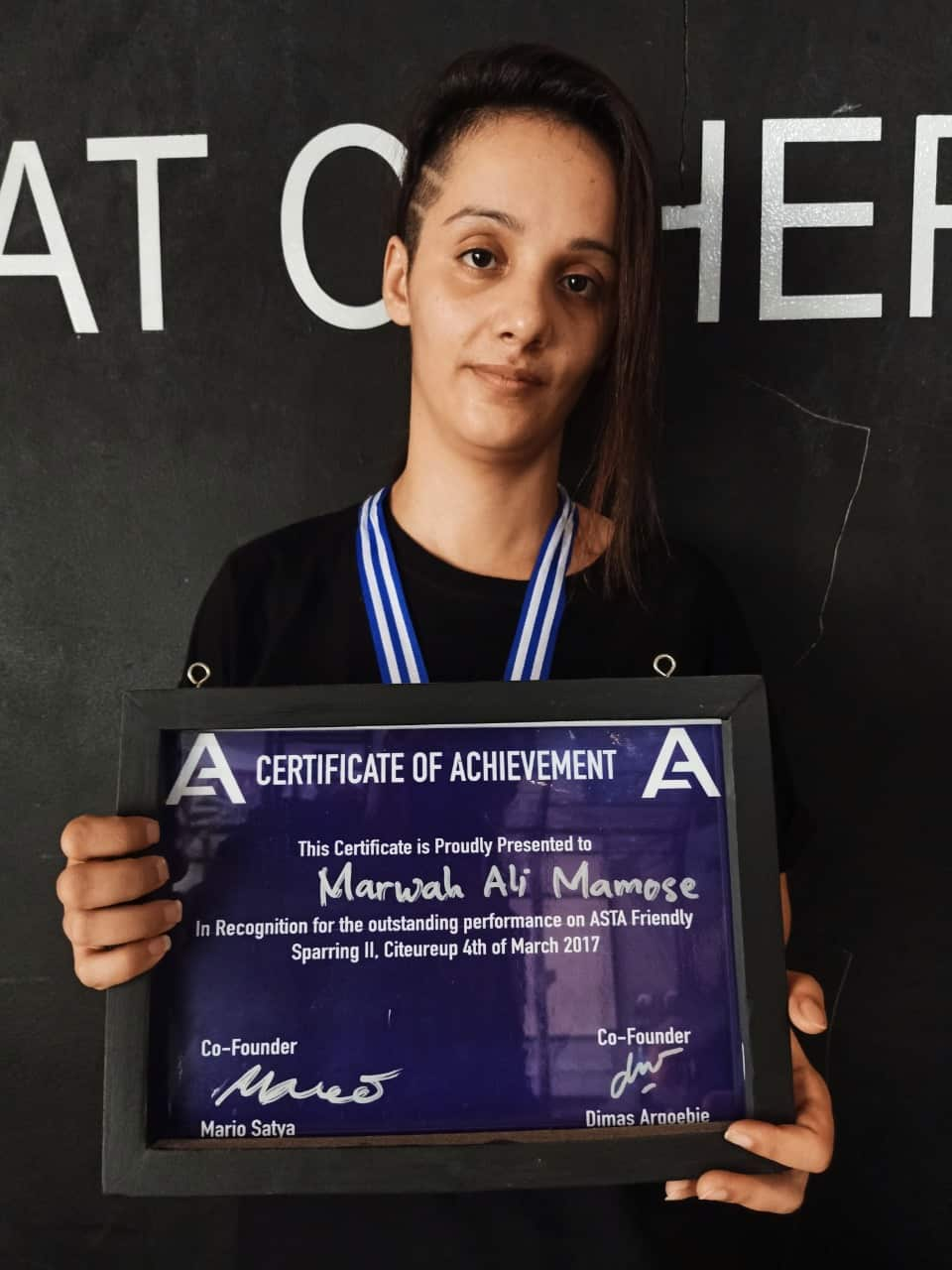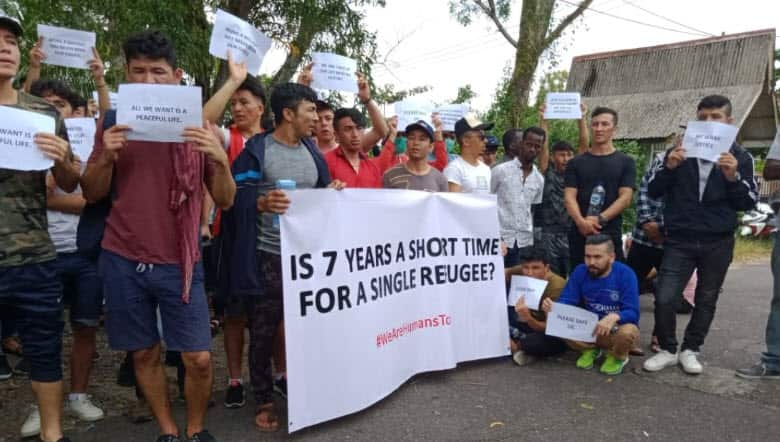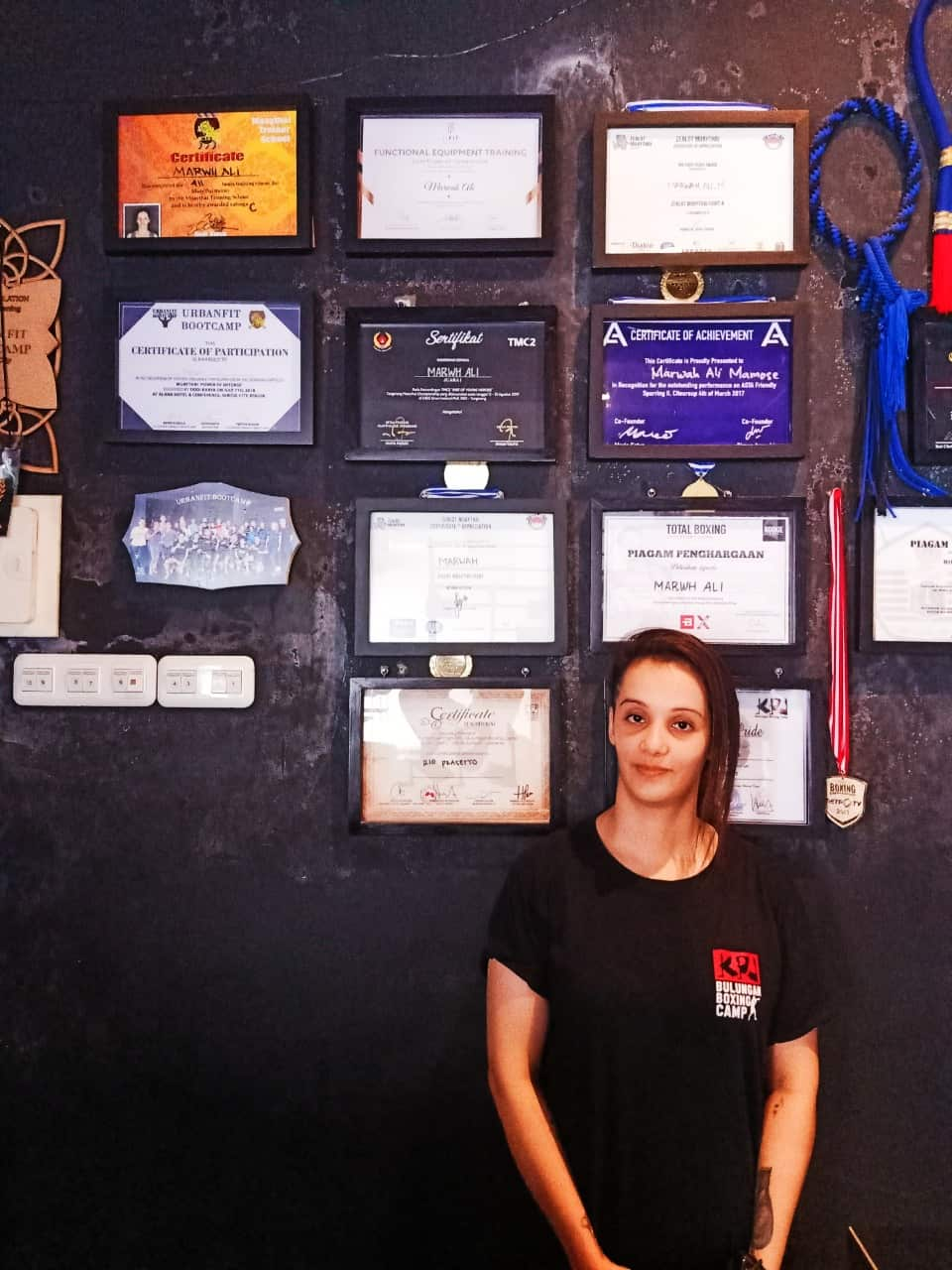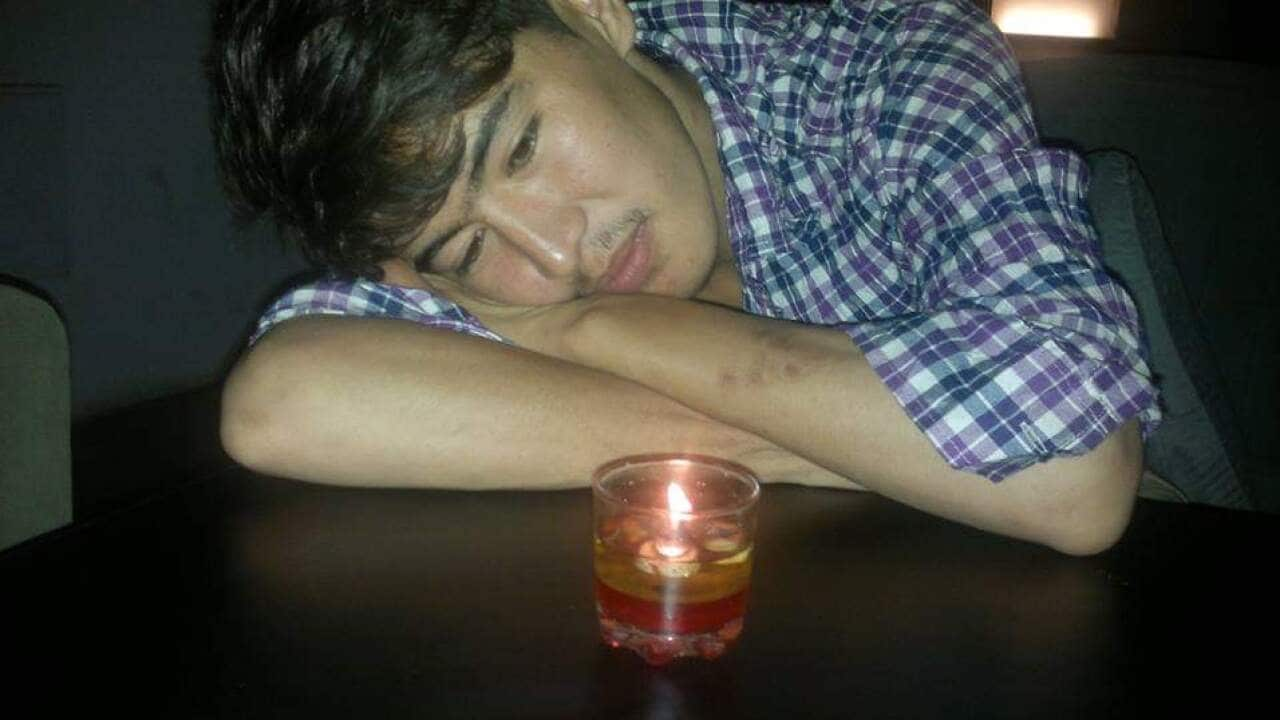In her house in Indonesia, Marwh Ali Mamosy’s awards cover her wall.
If she were in a country like Canada and London, she might have become the next Ramla Ali, who was the first Muslim woman to win an English boxing title. Instead, she lives in limbo.
In 2017, she was recognised as the best woman fighter in Jakarta and has been selected twice to fight in Asian tournaments in Malaysia, but she couldn’t go.
As an Iraqi refugee in Indonesia, she cannot travel outside the country to compete.
“I have been offered a lot of big fights both nationally and internationally, which could have changed my life. As a refugee, I was denied this opportunity,” she said.
Marwh is a 35-year-old mother of an eleven-year-old and the wife of a pastor. She is also a professional coach training refugees and locals in Bogor, an area that’s a two-hour drive from Jakarta.

When asked how she became a champion, Marwh explains, “I always liked strong sports since I was a child and was looking for an opportunity to join a fight club.”
Marwh joined a Taekwondo class in 2015, borrowing money because she could not afford the fees. She trained for a year non-stop before entering local competitions and winning.
She didn’t always dream of being an athlete. When Marwh was young, she wanted to become a veterinarian, but she was banned from pursuing higher education in her native Iraq.
She explains, “I really felt sad and cried when my father stopped me from going to school. Instead, I simply became a housemaid cooking for my family and doing nothing at all.”

According to UNHCR, there are over 13,500 refugees in Indonesia. Twenty-seven per cent are women. A majority are from Afghanistan, Syria, Yemen, and Iraq who fled ongoing persecution, war or violence.
“I felt like I did not belong to my country. Even when I was a teenager, I was forced to wear Burka and hijab all the time and could not go out alone. When I played football with boys, they mock me saying that I am a girl, why don’t I do girl things like covering my face and stay at home,” Marwh said.
But Marwh’s experience is only one of many other refugee women in Indonesia.
Fleeing Iraq
In 2009, Marwh married Saeed Mamusi. Fleeing war, the couple left Iraq and sought refuge in Iran.
Marwh’s freedom was even more restricted. The pair could not work and the oppression of women was intense.
“I thought Iran would be better, but it was much worse for women. In Iraq, I did not need to wear Hijab at home, but in Iran, I was forced to wear them at home,” she said.
In 2011, Marwh and her husband found a smuggler who helped them leave Iran, hoping to ultimately seek refuge in Australia. After a long and terrifying journey from Iran to Malaysia, crossing the sea in a small rickety boat, they arrived in Indonesia but could not make it to Australia as they were arrested and detained.
Indonesia is a transit for many refugees and asylum seekers who arrived to travel onward to Australia. However, in 2013 Australia announced that refugees arriving by boat would be sent back or be detained in offshore detention centres. In 2014, then immigration minister Scott Morrison said any refugees who registered with the UNHCR in Indonesia after June 2014 would not be resettled in Australia, and reduced the number of refugees that would be resettled in Australia. In 2019, Australia resettled only 44, according to the UNHCR’s resettlement data tool.
The family then registered with UNHCR, but their application was rejected and had to fend for themselves as they did not receive any help from any organisation or NGOs for nearly six years. In 2017, they received their refugee’s status and shelter from the International Organization for Immigration (IOM).

A lost dream
Marwh wishes to fight in Thailand but she is still unable to leave Indonesia.
“Even though I am a champion now, I am useless. I could have become an international fighter. I am hardly surviving with coaching. I cannot use my talent to support my family and myself.”
Indonesia has yet to sign the UN refugees’ convention. Refugees are unable to access to education and it is very difficult to gain paid work. Most refugees purely rely on IOM (international organization for Immigrants) for shelter and a monthly allowance. In 2018 Australia reduced its funding to IOM, limiting its means to assist refugees.
The UHCR said it may take up to 25 years for refugees to be settled in a new country. For Marwh’s family, she cannot return to Iraq. It is now even more dangerous for them to return to Iraq since they converted to Christianity. They are now living in ghetto conditions in Sentul city, two hours far by car from Jakarta.
One day, when it's safe, she hopes to return to her home country.
“My dream is to open a women's fight club in Iraq if possible, in the future to show the men in Iraq who persecuted me just because like sports, that women are stronger than they think and that women can do everything men can,” said Marwh.
Dateline is an award-winning Australian, international documentary series airing for over 40 years. Each week Dateline scours the globe to bring you a world of daring stories. Read more about Dateline
Have a story or comment? Contact Us




